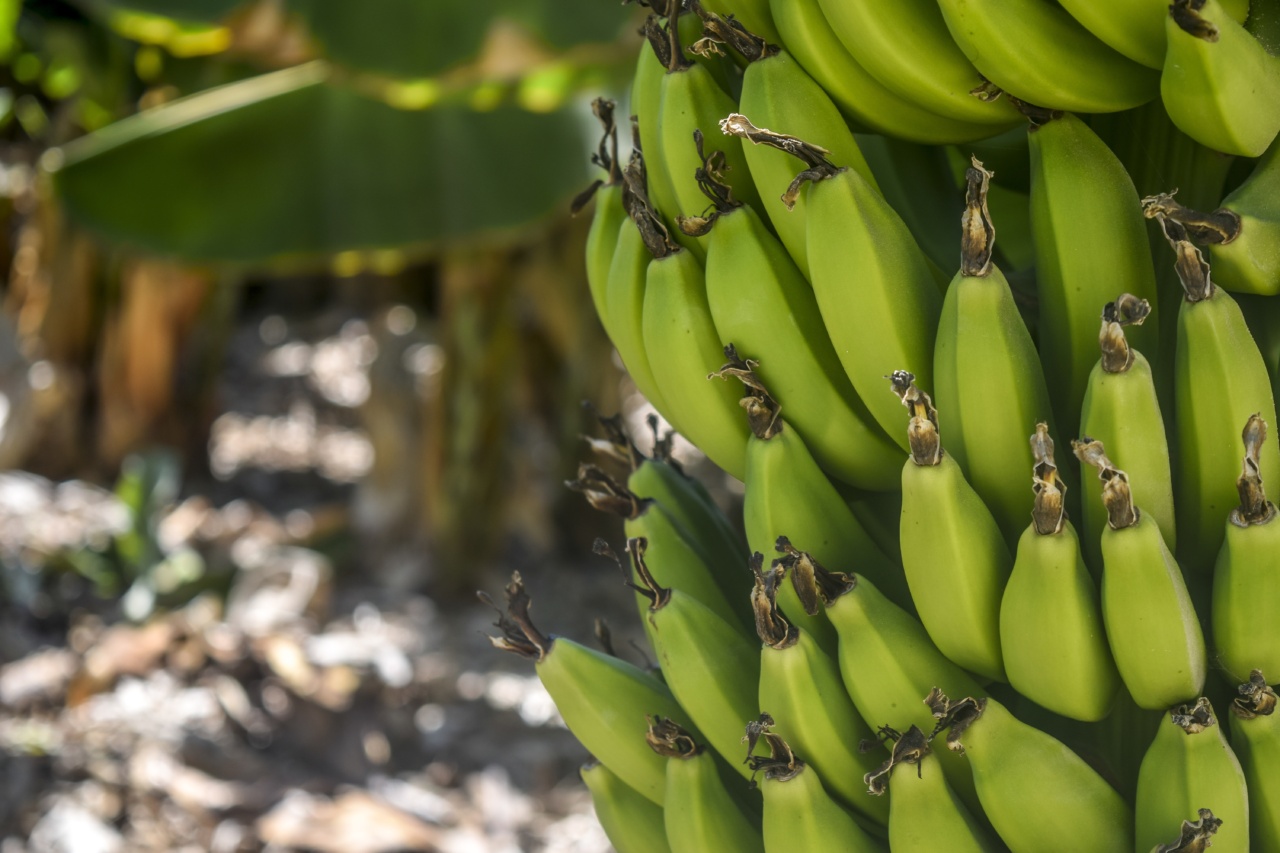Potassium is an essential mineral that plays a vital role in regulating blood pressure, heart function, and muscle contractions. It is also essential for proper nerve function and the balance of fluids and electrolytes in the body.
Potassium is classified as an electrolyte, and its deficiency can lead to serious health problems, including high blood pressure, stroke, and heart disease. Fortunately, there are plenty of potassium-rich foods available that can help you meet your daily requirements. In this article, we will explore some of the most power-packed potassium foods that you should consider incorporating into your diet.
Bananas
Bananas are high in potassium and are a great source of quick energy. One medium-sized banana contains about 400 to 450 mg of potassium, which is about 10% of the daily recommended intake.
Bananas are also a good source of dietary fiber and vitamin C, making them a healthy snack for people of all ages. They are easy to carry and can be eaten quickly on the go, making them a perfect snack for busy individuals.
Sweet Potatoes
Sweet potatoes are a nutrient-dense food that has numerous health benefits. They are high in fiber, vitamins, and minerals, including potassium.
One small sweet potato contains about 350 to 400 mg of potassium, which is about 9% of the daily recommended intake. Sweet potatoes are also rich in antioxidants, which can help protect against cell damage and reduce the risk of chronic diseases such as cancer and heart disease.
Spinach
Spinach is a leafy green vegetable that is rich in nutrients, including potassium. One cup of cooked spinach contains about 840 mg of potassium, which is about 24% of the daily recommended intake.
Spinach is also an excellent source of vitamins A and C, folate, and iron. It is low in calories and can be added to salads, smoothies, and many recipes to boost nutritional value.
Avocado
Avocado is a delicious and creamy fruit that is high in healthy fats, fiber, vitamins, and minerals. One medium-sized avocado contains about 700 mg of potassium, which is about 20% of the daily recommended intake.
Avocado is also an excellent source of vitamin K, which is essential for blood clotting and bone health. It can be used in a variety of recipes, including salads, sandwiches, and dips such as guacamole.
Beans
Beans are a versatile and nutrient-dense food that is rich in potassium. One cup of cooked beans contains about 450 to 700 mg of potassium, depending on the variety. Beans are also high in dietary fiber, plant-based protein, iron, and folate.
They can be used in a variety of dishes, including soups, stews, salads, and even burgers and spreads.
Salmon
Salmon is a fatty fish that is loaded with healthy omega-3 fatty acids, protein, and potassium. One serving of salmon contains about 450 to 550 mg of potassium, which is about 13% of the daily recommended intake.
Salmon is also an excellent source of vitamin D, which is essential for bone health and the immune system. It can be cooked in a variety of ways, including grilling, baking, and pan-searing, and can be served with a variety of dishes.
Yogurt
Yogurt is a fantastic source of probiotics, calcium, protein, and potassium. One cup of plain yogurt contains about 380 to 580 mg of potassium, which is about 11% to 17% of the daily recommended intake.
Yogurt is also low in calories and can be used as a dip or added to smoothies, breakfast cereals, and many recipes that require a creamy texture.
Tomatoes
Tomatoes are a common ingredient in many cuisines and are an excellent source of vitamins, antioxidants, and potassium. One medium-sized tomato contains about 240 mg of potassium, which is about 7% of the daily recommended intake.
Tomatoes are also low in calories and can be used in salads, sandwiches, soups, and many other recipes.
Oranges
Oranges are a delicious and refreshing fruit that is high in vitamin C, fiber, and potassium. One medium-sized orange contains about 240 mg of potassium, which is about 7% of the daily recommended intake.
Oranges are also an excellent source of antioxidants, which can help protect against cell damage and reduce the risk of chronic diseases such as cancer and heart disease.
Pistachios
Pistachios are a type of nut that is high in protein, healthy fats, fiber, and potassium. One ounce of pistachios contains about 295 mg of potassium, which is about 8% of the daily recommended intake.
Pistachios are also an excellent source of vitamin B6, which is essential for brain function and the production of red blood cells. They can be eaten as a snack or added to dishes such as salads and desserts.
Conclusion
In conclusion, potassium is an essential mineral that is needed for various functions in the body. It is essential to consume enough potassium-rich foods to maintain good health.
The foods listed in this article are just a few of the many power-packed potassium foods that are available. By incorporating these foods into your diet, you can meet your daily potassium requirements and enjoy the many health benefits that come with it.





























